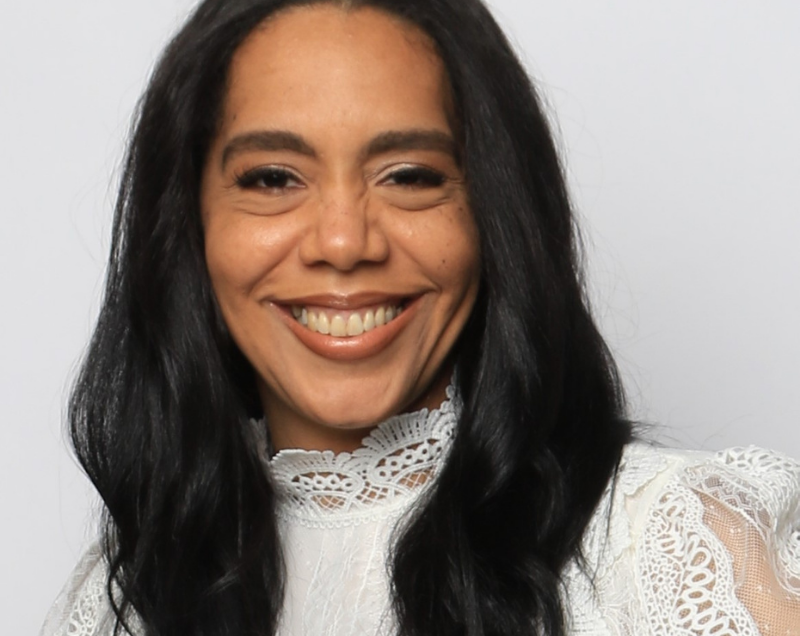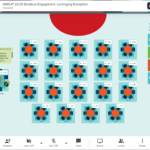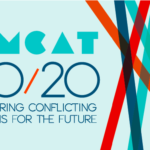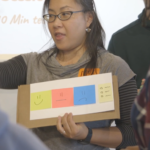WMCAT 20/20 Participant Reflection: The Ironies of Poverty

Understanding Poverty While in the Business of “Helping”
By Noele Stith
Noele is a participant in the eight-month series, WMCAT 20/20: Exploring Conflicting Visions for the Future, hosted by the West Michigan Center for Arts + Technology (WMCAT). The January 14, 2021 Community Meeting included content contributors Kyd Kane and Eldar Shafir. This blog is a reflection on Shafir’s presentation, “The Ironies of Poverty.” Learn more at wmcat2020.org.
In a week of disgust and heaviness as a Black woman in America, Daniel Williams’ opening message* lessened my engagement anxieties as I was met with shared sentiments of my current heart. He charged us to not deny the ugly history of our country but instead consider what it will take for us to not be “this America.”
Kyd Kane was FIRE for the artist spotlight as we heard glimpses of her powerful, thought provoking life experiences and poems. Especially the sound bites of “LEMON•aid” which is worth a listen with several repeats, multiple arms raised high, and loud finger snaps.
The speaker Eldar Shafir shared wisdom on the topic, “Scarcity – The Ironies of Poverty”. For me, as a professional that has worked in nonprofits for over 13 years in one of the most philanthropic cities in the country, EVERYTHING he said needed to be said and heard.
Mr. Shafir shared how often we stereotype, judge, and are misguided when it comes to poverty. He is brilliant in his understanding of the cognitive impacts of those living in poverty. For the sake of the discussion, he renamed “those in poverty” to “the poor” and defined the poor as those that are living with “not enough.” Not the homeless, not the free-and-reduced-lunch kiddos, or those in low-income housing, but simply those that are living without enough. He shared that “the poor” equates to roughly one-third to half of Americans.
In the lane of education, I experience firsthand the poor students and their families, and see and understand the cognitive impacts it has on students. One of my hopes is that educators, especially those in high poverty school buildings, would understand students’ and parents’ cognitive bandwidth and its impact on academics, attendance, behaviors, and parenting. Being hungry, sleeping in class, attendance issues, etc., are all symptoms of poverty. As much as I see expectations for academics and parenting being pushed on the poor, I wish we cared about compassion, empathy, mental health, and resource-sharing – areas that would truly help education be more equitable.
Shafir drilled into the idea of one’s inability to utilize full cognitive capacity when being poor. He referenced instances like misinformation or lack of information around high-rate payday loans when trying to avoid eviction for your family; or how the poor can successfully pass financial literacy courses, but until they have enough, most will continue to live in survival mode despite the new set of skills.
In the business of helping, our policies and missions must align. We cannot have unrealistic expectations for the poor. A family of five that rides the bus in the winter, may be late. The no-call, no-show ratio may be high due to unmet basic needs hijacking the mind space of the poor; their appointment with you is not their current priority, yet it is their third strike, meaning they are no longer allowed access to your services. Perhaps the service hours of your organization meet the needs of your volunteers and staff, versus the population you serve. Little tweaks that express compassion and understanding speak volumes to the weary cognitive soul and opens their ability to be empowered.
Days before the Dr. Martin Luther King, Jr. holiday, I needed the reminder of him and his belief of an evil in this country being the economic exploitation of poverty. And that his last days were working on the Nice North through the Poor Man’s Campaign, attempting to shed light on the systems that exploit and oppress people of color; and that the machine functions well keeping the poor, poor. This reminder poured fuel on my drive to continue to disrupt.
*From the Editor: Below is an excerpt from Daniel Williams’ introduction at the January 14, 2021 event that the author references in the first paragraph.
We gather today a week after one of the darkest days in our nation when the capitol building was besieged by insurrectionists compelled by the pervasive and pointed forces of white supremacy; and we also gather less than a week before the inauguration of a new administration, a peaceful tradition that reinforces the promise of democracy.
Just like all of you, I have done a lot of reflecting this past week and I’ve soaked up a lot of media, opinions, and statements. I have little patience for those saying “This isn’t America, it’s not who we are.”. This is who we are. It’s who we’ve always been. Instead of insisting, “It’s not who we are,” maybe a more appropriate response is, “Is this who we want to be?”
And if not, what will it take for us to not be that America in the future?
ABOUT THE AUTHOR
Noele Stith is a Community School Coordinator for Kent School Services Network. She has extensive experience in the non-profit, ministry, business, and education sectors, and specializes in working on leadership development, equity and inclusion and Co-Facilitates KSSN’s Anti-Racism committee, along with sitting on several community committees that serve to build equity. She and her husband are also local business owners of CNN Cleaning, a commercial cleaning company.






